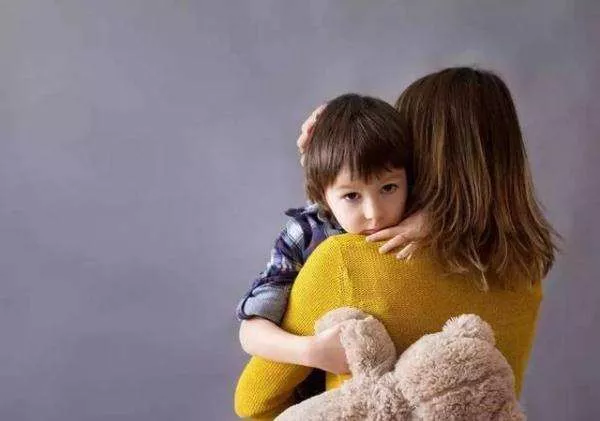Choosing friends is a significant aspect of life, impacting our social interactions, emotional well-being, and personal growth. Amidst the myriad of qualities that one might consider when selecting friends, there is one that stands out above all others: trust. In this article, we delve into why trust is the most important quality for choosing friends, exploring its role in fostering meaningful connections, promoting mutual respect, and creating a supportive social network.
Understanding the Significance of Trust
Trust forms the foundation of any strong and lasting friendship. It is the belief that we can rely on our friends, confide in them, and depend on their support. When trust exists between friends, it creates a sense of security, openness, and authenticity in the relationship. Trust allows friends to be vulnerable with each other, share their thoughts and feelings, and navigate life’s challenges together.
Fostering Emotional Security and Support
One of the primary functions of trust in friendships is to provide emotional security and support. Friends who trust each other feel safe expressing their emotions, knowing that they will be met with empathy and understanding. This emotional security allows friends to confide in each other, seek advice, and offer comfort during difficult times.
When friends trust each other, they create a supportive environment where they can freely share their joys, sorrows, and fears. This emotional support strengthens the bond between friends and promotes a sense of camaraderie and solidarity. Trust enables friends to be there for each other unconditionally, fostering a deep and meaningful connection.
Promoting Mutual Respect and Understanding
Trust is also essential for promoting mutual respect and understanding between friends. When friends trust each other, they demonstrate respect for each other’s thoughts, feelings, and boundaries. This mutual respect creates a positive and affirming dynamic in the relationship, where each person feels valued and appreciated.
Furthermore, trust fosters understanding between friends, allowing them to empathize with each other’s perspectives and experiences. Friends who trust each other are more likely to listen attentively, communicate openly, and validate each other’s feelings. This mutual understanding deepens the friendship and strengthens the bond between friends, fostering a sense of unity and solidarity.
Facilitating Open and Honest Communication
Effective communication is essential for maintaining a healthy and fulfilling friendship, and trust is a cornerstone of open and honest communication. When friends trust each other, they feel comfortable expressing their thoughts, feelings, and concerns openly and honestly. This transparent communication fosters authenticity and intimacy in the relationship.
Trust enables friends to have difficult conversations, address conflicts constructively, and resolve misunderstandings. Friends who trust each other are more likely to listen non-judgmentally, validate each other’s perspectives, and work together to find mutually satisfactory solutions. This open and honest communication strengthens the friendship and promotes a deeper understanding between friends.
Building Reliability and Dependability
Trust is closely linked to reliability and dependability in friendships. Friends who trust each other can rely on each other to keep their promises, honor their commitments, and be there when needed. This reliability creates a sense of dependability in the relationship, where friends know they can count on each other no matter what.
When friends trust each other, they build a solid foundation of trustworthiness and accountability. They demonstrate consistency in their actions, show up for each other in times of need, and follow through on their commitments. This reliability fosters a sense of security and stability in the friendship, strengthening the bond between friends and promoting a sense of mutual support.
See Also: What best friends do together?
Nurturing Loyalty and Intimacy
Trust is essential for nurturing loyalty and intimacy in friendships. Friends who trust each other demonstrate loyalty by standing by each other’s side, supporting each other’s interests, and defending each other’s honor. This loyalty creates a deep sense of connection and commitment in the relationship, where friends prioritize each other’s well-being and happiness.
Furthermore, trust fosters intimacy between friends, allowing them to share their deepest thoughts, feelings, and desires without fear of judgment or rejection. Friends who trust each other create a safe and nurturing space where they can be their authentic selves and explore their vulnerabilities. This intimacy strengthens the bond between friends and promotes a sense of closeness and connection.
Cultivating Shared Values and Goals
Trust is essential for cultivating shared values and goals in friendships. Friends who trust each other are more likely to share similar values, beliefs, and aspirations, creating a strong sense of alignment and compatibility. This shared foundation enables friends to support each other’s growth, celebrate each other’s successes, and navigate life’s challenges together.
When friends trust each other, they create a shared vision for the future, where they work towards common goals and dreams. This sense of purpose and direction strengthens the friendship and fosters a sense of unity and collaboration. Trust enables friends to rely on each other’s support and encouragement as they pursue their shared values and goals.
Overcoming Challenges and Adversities
Trust is particularly important for overcoming challenges and adversities in friendships. Friends who trust each other are better equipped to weather the storms of life, offering each other unwavering support and encouragement during difficult times. This resilience strengthens the bond between friends and deepens their connection.
When friends trust each other, they demonstrate resilience in the face of adversity, showing determination, perseverance, and optimism. They draw strength from each other’s support and encouragement, knowing that they are not alone in their struggles. This shared resilience fosters a sense of solidarity and empowerment in the friendship, enabling friends to overcome challenges together.
Conclusion
In conclusion, trust is the most important quality for choosing friends. Trust forms the foundation of meaningful connections between friends, fostering emotional security, mutual respect, open communication, reliability, loyalty, intimacy, shared values, and resilience. When friends trust each other, they create a supportive and nurturing environment where they can be their authentic selves, share their joys and sorrows, and navigate life’s challenges together.
In summary, trust is the linchpin that holds friendships together, enabling friends to rely on each other, share experiences, and grow together. As we navigate the journey of friendship, let us prioritize trust as the most important quality in choosing friends, recognizing its profound impact on the depth and longevity of our relationships. With trust as our guiding principle, we can cultivate friendships that bring joy, fulfillment, and support into our lives for years to come.
Related topics:



























